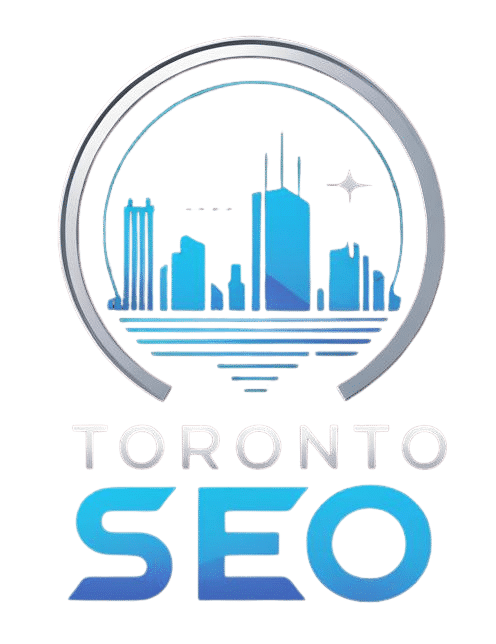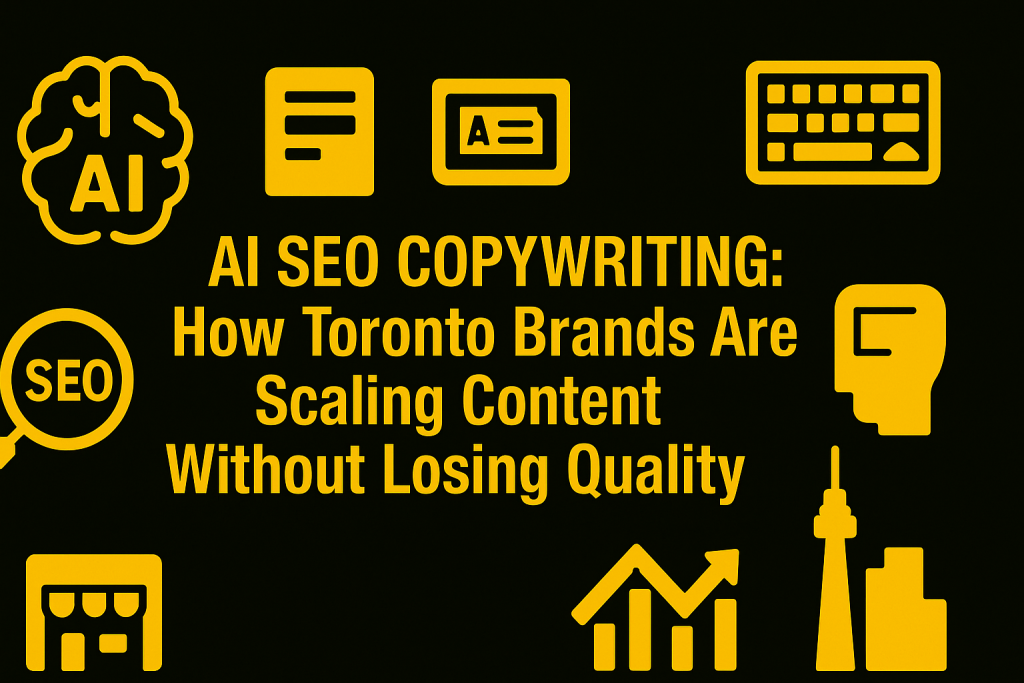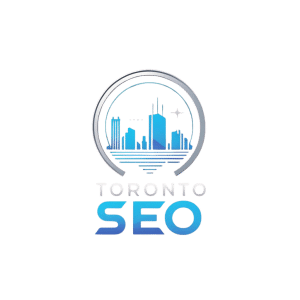In 2025, Toronto’s digital marketing landscape has evolved into an AI-driven ecosystem. Brands are no longer relying solely on traditional copywriters; instead, they are leveraging artificial intelligence to scale content creation at unprecedented speed. Yet, the question that defines success for modern marketers isn’t how much content they produce—but how good it is.
This guide explores how Toronto brands are using AI SEO copywriting to scale effectively without sacrificing creativity, brand voice, or Google ranking potential.
The Rise of AI-Powered SEO Copywriting in Toronto
AI has transitioned from being a futuristic concept to an operational necessity. Local businesses, from tech startups to law firms, are using AI tools to create blog posts, landing pages, and ad copy faster than ever before. But what separates high-performing Toronto brands from mediocre ones is how they integrate AI into their SEO strategy.
AI tools like ChatGPT, Jasper, and SurferSEO can generate data-informed content outlines and optimize for search intent. However, AI alone doesn’t understand your brand DNA—that’s where human oversight comes in.
To illustrate, Toronto SEO experts combine AI keyword clustering with human refinement to produce copy that’s both algorithm-friendly and emotionally engaging.
Why Toronto Brands Are Turning to AI for Content Scaling
1. The Need for Volume Without Compromising Voice
In a competitive city like Toronto, ranking on page one of Google requires publishing consistent, optimized, and relevant content. AI helps marketers scale blog output from 2–3 posts per month to 8–12 without diluting the message.
For example, AI-driven copywriting tools assist with:
Keyword clustering for multiple service areas (e.g., “SEO Toronto,” “Local SEO GTA”).
Creating unique meta titles and descriptions at scale.
Rewriting older content to meet Google’s latest EEAT standards.
See how content optimization boosts engagement and rankings when powered by smart automation.
2. Smarter Keyword Targeting with AI Models
Machine learning tools analyze user intent across thousands of search queries. Instead of relying on generic terms, brands now target semantic clusters—a more effective way to capture traffic for long-tail, conversion-ready keywords.
For instance, a Toronto digital agency could optimize for:
“AI SEO Toronto”
“Toronto AI content marketing”
“Machine learning keyword research Toronto”
These are exactly the kinds of high-intent phrases used by top-ranking sites like TorontoSEO.com.
The Human Touch: Maintaining Brand Quality in AI Content
Even though AI can draft articles, it can’t replicate human nuance. The best-performing Toronto brands ensure every AI-assisted post undergoes editorial oversight. Here’s how they preserve quality:
1. Brand Consistency
AI-generated drafts are edited for tone and brand identity. Human editors refine sentence structure, ensure factual accuracy, and inject emotional depth that AI often misses.
2. SEO Layering and Schema Optimization
SEO strategists incorporate structured data markup and internal linking to reinforce authority. For example, an AI-generated post about “SEO trends” could internally link to Understanding Google’s Latest Algorithm Update for added context.
3. Local Relevance
Toronto audiences respond to local data, real-world examples, and regional insight. AI writers guided by local SEO professionals can tailor content to reference the GTA, Mississauga, and Vaughan markets—something generic AI outputs often fail to do.
How AI SEO Tools Optimize for Google’s Latest Algorithms
Google’s AI-enhanced algorithms, such as SGE (Search Generative Experience), prioritize context-rich content that demonstrates expertise. This aligns perfectly with AI SEO workflows that combine entity recognition, topic mapping, and predictive SEO models.
Here’s how Toronto brands are using these tools:
Entity-based optimization: Mapping keywords to brand-related entities to signal authority.
Predictive SEO forecasting: Using AI to anticipate search trends and plan content calendars.
AI-assisted link building: Tools like Postaga and Pitchbox help identify relevant outreach opportunities without spammy tactics.
For a deeper dive, see how Toronto agencies are preparing for a cookie-less, AI-powered web.

Case Study: How a Toronto Startup Tripled Traffic Using AI SEO
A mid-sized Toronto fintech startup combined SurferSEO and GPT-powered copywriting to produce 30 optimized articles in three months. Each post was manually reviewed for accuracy and tone. By pairing machine speed with human strategy, the company achieved:
+190% increase in organic traffic
+130% improvement in dwell time
50+ new backlinks from niche-relevant sources
Their content mix included AI-assisted blog writing, entity-based schema, and internal links to related pages like AI Content Optimization for Toronto Companies.
Balancing Automation with Expertise: The 80/20 Rule
Toronto agencies often use the 80/20 content production model:
80% AI-assisted drafting
20% human editing, strategy, and distribution
This ensures efficiency while preserving trust signals like author credentials, case studies, and citations. By maintaining this balance, brands enhance both their EEAT (Experience, Expertise, Authoritativeness, and Trustworthiness) and user engagement metrics.
Integrating AI SEO into Your Existing Content Workflow
1. Strategy First, Tools Second
Start with a keyword strategy. Tools like Ahrefs or SEMrush can identify high-value clusters. Feed these insights into your AI writing tools to generate outlines based on real data.
2. Layer Human Editing and Fact Checking
Every AI-generated draft must go through a human SEO editor to validate data, rewrite unnatural phrasing, and add internal links to relevant guides like The Future of SEO in Toronto.
3. Publish, Measure, and Refine
Use Google Search Console and analytics tools to track click-through rates (CTR) and keyword performance. AI-driven platforms like Clearscope or MarketMuse can suggest real-time optimization updates.
For analytics insights, refer to How to Track SEO Performance with Analytics.
AI Copywriting and Compliance: What You Should Know
Ethical AI usage is becoming a major focus. Following guidelines from Canada’s AI and Data Ethics Framework ensures compliance and transparency. Brands should:
Disclose AI involvement in content creation.
Avoid AI hallucinations by fact-checking every claim.
Use approved datasets to prevent copyright infringement.
External Resources and Research Insights
AI SEO is reshaping the digital landscape globally. The Government of Canada’s Digital Charter emphasizes responsible innovation, while global publications like Search Engine Journal and Neil Patel’s blog continue to publish advanced strategies for content scaling. Toronto businesses that integrate these best practices early gain a measurable competitive edge.
Future Outlook: The Next Generation of AI SEO Copywriting
By 2026, generative AI models will evolve from text prediction to contextual brand storytelling. Expect to see:
AI tools understanding tone and audience segments automatically.
Real-time multilingual optimization for Toronto’s diverse audience base.
Dynamic content personalization powered by first-party analytics.
Forward-thinking brands will merge AI content automation with conversion optimization to dominate both organic rankings and customer acquisition funnels.
Conclusion: Scaling with Strategy, Not Spam
AI SEO copywriting isn’t about replacing human creativity—it’s about amplifying it. Toronto brands that embrace AI-human collaboration are already dominating search results and brand awareness metrics.
For expert help on integrating AI into your SEO strategy, connect with our Toronto SEO experts today and see how your brand can scale smarter, faster, and with measurable ROI.
FAQs
1. What is AI SEO copywriting?
AI SEO copywriting uses artificial intelligence to generate or enhance written content that’s optimized for search engines, helping brands produce more content efficiently.
2. Can AI replace human copywriters in Toronto?
No. AI enhances productivity but lacks creative judgment, tone adaptability, and deep understanding of audience psychology—elements human editors bring.
3. How do Toronto brands maintain quality while scaling content?
They implement editorial workflows where AI assists in drafting and keyword targeting, while human strategists refine messaging and verify accuracy.
4. Is AI SEO cost-effective for small businesses?
Absolutely. Many small Toronto firms use AI SEO to reduce writing costs while maintaining a consistent publishing schedule, boosting organic leads.
5. Which industries in Toronto benefit most from AI SEO?
Law firms, real estate agencies, eCommerce stores, and service-based businesses see strong ROI from AI-assisted content and keyword clustering.


